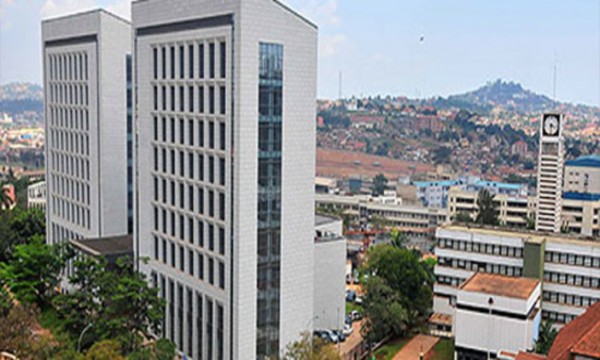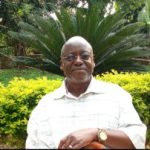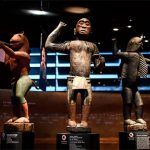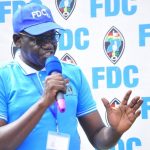By Oweyegha-Afunaduula and Charles Kawagga
When we recently wrote our article “Engineering and institutionalizing corruption through the Office of Prime Minister” in which we gave examples of mind-boggling cases of theft of public money and properties to prove our case, we never suspected that it would attract a lot of interest within the country and across the globe, especially among Ugandans in the diaspora. One concerned and enthusiastic reader asked us not to stop here but to go ahead and show how the Office of President of Uganda has been at the centre of engineering and institutionalizing corruption in the country for more than three decades.
We have adequate information to show the centrality of the Office of President of Uganda in the scourge of corruption in Uganda. Being retired academics and old men in our 70s, we have decided to respond to the request by the reader to do justice to the role of the Office of President of Uganda in fueling, sustaining and advancing corruption in the country. We have no interest in the quo whereby corruption is central to the economy because we are not beneficiaries of the scourge. We are just obliged as senior citizens to have our take on the issue of corruption and how the Office of President may be responsible for most of the corruption in the country.
We have coined our topic as given above to break monotony that would definitely arise if we tailored the topic to that we used to unearth the role of the Office of Prime Minister in the corruption scourge. In this article, however, we shall not separate corruption engineered and institutionalized by the Office of President from that engineered and institutionalized by State House. Over the years we have curiously watched the public residence of the President, State House, being fused with that of the Office of the President, just as the Ministries of Health, Education and Agriculture, have carried out functions high-jacked from different ministries and institutions. This is, of course, a corruption of both governance and the national budget.
We shall take corruption to be a very broad concept. We shall, therefore, go beyond economic and financial corruption, which we concentrated on in our previous article. We shall see corruption as having numerous dimensions, including political, social, economic, financial, administrative, educational, health, scientific, technical, regional, ecological, environmental, biotic, cultural, spiritual, legislative, judicial, executive, moral, military, ethnic, investment, electoral, public service, et cetera. Our assumption, which we have to prove is that the Office of President, and by extension, State House, is at the centre of corruption in Uganda, and its corruption influence radiates in all the dimensions of corruption but in a cobweb like manner.
Therefore, corruption in Uganda is a complex phenomenon in our view, existing, persisting, proliferating, sustained and spiraling supersonically upwards with the Office of President and, by extension, State House, as its engine and pivot.
The following aspects of the Presidency seem to explain the centrality of the Presidency in corruption in Uganda:
-
The Constitution of Uganda 1995 invests all power and authority in the person who occupies the Office of President and absolves him from being sued in case he committed a crime or a misdemeanor.
-
The President is the substantive Minister of Finance, with the Minister of Finance only deputizing for him.
-
The tendency of the President to relapse into Presidentialism, whereby he makes all the crucial decisions of whatever nature, and everything begins and ends with him.
-
The tendency for the President to fall victim to ethnic and kinship politics, which compels him to seek to entrench the unfortunate saying that “Blood is Thicker than Water.
-
Choosing political merchants to run businesses under privatization polluted by ethnic and kinship consideration.
-
Determined long-term politico-military effort to destroy alternative political thought and practice in the country to enhance Presidentialism.
-
De-institutionalization of the country by over militarization of the economy, public and other institutions.
-
De-nationalization of the country by populating it with large numbers of refugees some of whom have in the past occupied jobs that would otherwise be occupied by the indigenous people.
-
Capacity to hover over the legislature, judiciary and executive arms of government, and even influence their decisions single-handedly.
-
Ever linking the governance of the country to the Luwero bush war instead of allowing it to go forward, and in so doing populating most institutions with Luwero bush war combatants or those connected to them genetically and ethnically.
-
Enacting laws (i.e., Sectarian Law, Terrorism Law, Political and Other Organizations Law, etc) to disable indigenous citizens politically, thereby preventing them from genuine participation in the governance, leadership and economy of the country.
-
Constitutional engineering to ensure that term limit and age limit does not apply to the Presidency, and to allow for hereditary politics, particularly with regard to Presidency.
-
Manipulation of citizenship and dual citizenship to disadvantage the indigenous citizens with regard to resources, including power, jobs, opportunities and participation in governance, leadership, business, politics, etc.
-
Allowing the rise and rise of the deep state whereby unelected officials have even more power and authority than the elected officials and can influence virtually everything including appointments anticippointments.
-
De-registration of parts of National Parks and Game Reserves, including mining in them and forests, replacing them with foreign crops such as sugarcane, oil palm and Eucalyptus.
-
Allowing people belonging the nomadic-pastoral human energy system and with cultural, biological, genetic, and ecological roots outside the country to incessantly grab and occupy the indigenous and sacred lands of the settled communities of Bantu, Luo and other ethnic groups without constraint or restraint.
The list of the various manifestations of the President of Uganda is inexhaustible. It points to one thing that most corruption arises from the various manifestations of the President in every sphere of human activity, making choices and selecting actions that suit his personal interests or those close to him.
It was the manifestation of the President that resulted in the fated foreign exchange in 1987 that resulted in many indigenous people and their firms losing billions of shillings, while numerous former combatants of the Luwero Triangle emerged out of the exercise stinkingly rich. Many died extremely wealthy, and those who are still alive are among the richest in the country. If we view the exercise this way, then it was a corrupt exercise designed to impoverish the indigenous people.
It was the manifestation of the President in terms of decision-making that introduced a distorted modernization and privatization policy that saw the bush combatants and those connected to them genetically, ethnically and kinwise benefiting financially and in terms of property from the wholesale sale of public enterprises, some at one shilling each. This hyped the wealth of the combatants even further. It was no more or less stealing from the public to enrich the combatants many of whom were of Rwandese nationality or origin.
It was the manifestation of the President in terms of decision-making that saw numerous indigenous Ugandans being retrenched from their jobs in early 1990s, ostensibly to build a small, efficient labour force in the civil service. However, over the years the jobs were filled with ethnically related people connected to power and speaking the same language. Other numerous, meaningless jobs were created to accommodate even more of such people. Meanwhile, most of the retrenched and the several families that used to benefit from them socially and economically sank into untold poverty. Many, just like the former workers of the defunct East African Community who were never paid their benefits, are still waiting to be paid their dues arising from forced termination of their services. We now see corrupt social disorientation in the country in favour of the powerful, those connected to them, their families and originating mainly from Western Uganda where many immigrants settled and easily call themselves Bahima.
It is Presidential manifestation by ignoring the widespread land grabbing by mainly immigrants that has forced numerous indigenous Ugandans to become internal refugees and a floating population in their local environments in their own country, or to migrate en masse to towns and cities, where they end up being pollutants and, therefore, undesirables whose only wealth is their income and social poverty. It is as if the aim is to turn the formally nomadic pastoralists that roamed the land with their cattle attached only to grass, into modern day settlers and big landowners at the expense of the traditional owners of the land. This is dangerous corruption akin to what obtained in Apartheid South Africa when ethnic segregation against Blacks reigned.
It was the Presidential choice or decision to erase Bujagali Falls (which should be more accurately written as Budhagaali Falls) from River Nile, despite the fact that local ecotourism based on it provided livelihoods for many people and sustained the then Municipal Council of Jinja with enormous income. The Presidential desire was to erect a hydroelectric power station, not so much to power Uganda as to power neighboring countries. Indeed, when environmentalists and human rights crusaders argued that Bujagali power would be too expensive for Ugandans, the President retorted that if Ugandans were too poor to buy the electricity, he would sell it to Uganda’s neighbours. Indeed, Bujagali electricity ended up too expensive for most Ugandans, and even institutions, to afford it, Affordability of rather than accessibility to electricity has remained the most teething issue in the energy sector. However, as if this was not enough, the President decided to invite a public firm in South Africa, Eskom, to run Uganda’s electricity subsector, and went on to split Uganda Electricity Board into six small firms managed largely by people from one region and ethnically related.
We can go on and on to show how Presidential manifestation and choices or decisions have ended up corrupting the entire economy of Uganda. For lack of space let’s end with early money bonanzas by President Yoweri Tibuhaburwa Museveni to empower various firms with financial capital, ostensibly to enhance their performance in the economy. By the time of writing this article we had not found evidence that any of the firms paid back the public money they got with the President’s authority. But we know that the President still intervenes with money bonanzas to financially capacitate even very shadowy firms, such as those of the Italian-Arab woman, Enrica Pinetti, romoured to be a daughter of former Libyan strongman Mammuar Gaddafi. The President of Uganda, both as an institution and personality, stood on his feet and insisted that Parliament allocated money to Pinetti to run Uganda’s Coffee industry as the sole buyer and processor, and to build a state-of-the-art Lubowa Hospital.
Later the President said he was the one who told Pinetti to add value to Uganda Coffee before he angrily said he was Pinetti. Indeed, on 10th February 2022, Minister Matia Kasaija signed a coffee processing deal with Enrica Pinetti worth UGX 284 billion to process and export Uganda coffee to Europe and the Middle East. We have not been able to establish whether the Pinetti deal-based coffee processing has started and if Europe and the Middle East have started to get the Pinetti processed coffee. All we know is that on the instigation of the President of Uganda, Pinetti got the Uganda Taxpayers’ money. However, we know also that the building of Lubowa Hospital stalled, although Pinetti initially got UGX 349 billion to build it, and the Minister of Finance asked Parliament for another UGX 319 for the hospital.
This is part of today’s presidentially mediated fleecing of the country of scarce financial resources. In the past the story was roughly the same, but probably Ugandans were so mesmerised with “liberation” that they did not notice how money bonanzas then were disguised channels for diverting public money to the pockets of individuals, ostensibly to develop the country. Individual merit approach to the economy was very much at work as it was to political leadership and governance.
Below, in Table 1, is a list of firms publicly known to have received financial endowments in a similar manner. It would not be surprising if some of them no longer existed. However, it is publicly known that many firms owned by the top cadres of the NRM political establishment, and even those in the middle or even lower cadres but connected by blood and/or family to the cabal in power, did not start their firms with their own money. They either got money bonanzas presidentially or through dubious deals that resulted in their primitive accumulation of wealth, which is the same as stealing from government coffers or from the public.
Table 1. Beneficiary Firms of Presidential Money Bonanzas of President Tibuhaburwa Museveni
Uganda Motor LtD 1,7bn UPET 2.4bn
Akamba (U) LtD 329m Biggrey Trading Co 358m
BTS (U) 173m Central Purchasing Co LtD 5.3bn
Dick Kizito 168m GM Combine 368m.
Highway Motors LtD 101m GM TUMPECO LtD 299m
Jasaba Pharmaceuticals LtD 209m Kibuguma Coffee Growers LtD 58m
Makyo Enterprises LtD 36m Marks Pharmaceuticals LtD 74m
Mpiima Trading Co LtD 58m Oscar Industries LtD 218m
Republic Motors LtD 547m Siki Trading Co LtD 145m
Sembule Steel Mills 385m Tank Hill Quarry 37m
Spear Motor LtD 14m
It would indeed be useful if researchers found out how many of the above-mentioned firms still survive in the harsh economic environment, how many have returned the public money to the government coffers, and how many have paid and continue to pay taxes. We are saying so because we know for sure that the President’s own firm called DANZE was wound up by the President because it evaded paying taxes to Uganda Revenue Authority (URA). We are aware that the President apologized to Ugandans, but we are not sure if the firm paid the back taxes before or after it was wound up. That is for future researchers to find out.
Today corruption through money bonanzas is most detectable in presidentially launched and preferred purely economic, socially empty anti-community schemes, namely: Bonna Bagaggawale, Myooga, Operation Wealth Creation and Parish Development Model. Although vast sums of money have been passed through these schemes, claiming that they are a means to combat debilitating poverty, the truth on the ground is that they have had little value added in the fight against poverty. They have either entrenched poverty in the rural areas or enriched those involved in implementing them, these are invariably NRM Party functionaries, politicians of the ruling party, soldiers and presidential representatives in the country’s numerous, often unviable districts, and called Resident District Commissioners (RDCs) or their deputies (D/RDCs).
President Tibuhaburwa Museveni innovated the Zero Tolerance for Corruption (ZTC), but he probably did not suspect that the Money Bonanza Strategy (MBS) would emerge to be a major avenue for fleecing the country of money that would otherwise be invested in things like agriculture, education and health for the social development of Ugandans. However, we know and have stated in our previous article that the President discouraged his Inspector General of Government (IGG), Beti Kamya, from using a method (i.e., Lifestyle Audit) that was successful in combating corruption in Singapore to catch the thieves surrounding him. He reasoned that it would discourage the looters from investing their loot in the country and pushing them to invest in foreign countries.
If Ms Kamya felt a bit uncomfortable with President Museveni’s public emasculation of her efforts to fight corruption in Uganda, she actually came off quite lightly, compared to her counterpart anti-corruption CEOs elsewhere in Africa, who have been publicly humiliated and summarily hounded out of office long before the end of their tenure, the very moment these anti-corruption chiefs started stepping on the toes of some crooked members of the political establishment, This list includes: Leonard McArthur, South Africa (2003); Nuhu Ribadu, Nigeria (2004); Ibrahim Lamorde, Nigeria (2007); Farida Waziri, Nigeria (2008); Prof..P.L.O. Lumumba, Kenya (2010); Ibrahim Magu, Nigeria (2015); Martha Chizua, Malawi (2021) and Abdulrasheed Mawa, Nigeria (2023). This alarming mortality of the top officials appointed to fight corruption in Africa is a simple manifestation of corruption vociferously fighting back, all over Africa.
Growing up in the immediate post-independent Uganda of the 1960s, we were constantly bombarded with a common rhetoric by members of the ruling political class then, that the problems of underdevelopment in Uganda in particular and Africa in general were caused by colonialists. The citizenry believed these pollical leaders hook, line and sinker, although more out of patriotism than lack of a desire to offer a counter-narrative.
Half a century later, this excuse does not only sound senile, but has become increasingly unsustainable. It is therefore high time we faced the ugly truth that one of the main reasons for our underdevelopment is not due to colonialists but is much closer home: an embarrassingly inept political leadership, characterized by excessive, if not unhealthy, desire to remain perennially in power at all costs, invariably spiced with excessive, if not destructive levels of primitive looting of public funds. Incidentally, and very tragically for Uganda, these were the very sentiments expressed by none other than President Museveni himself, soon after capturing power nearly fourty years ago. So, the question remains….what then happened?
For God and My Country
This post was created with our nice and easy submission form. Create your post!






